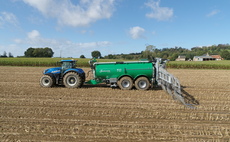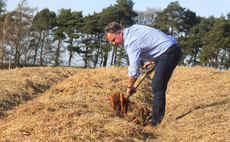
Alex Phillips is a partner and head of the agriculture and rural affairs division at law firm mfg Solicitors.
Selling land, or even a whole farm, can historically take a significant amount of time and energy with a huge amount of complex legal checks, boxes to tick, and a potential chain of several professionals who must all be in constant communication.
In the past six months, we have unfortunately seen extensive delays in completing some transactions which, more often than not, have been due to insufficient paperwork and records being available.
The lack of paperwork can be a huge frustration for all sides, but it is an issue farmers and landowners must be on top of if sales are to go through smoothly and with minimal delay. The list of documentation needed for a sale is wide and varied, however there are several key areas which we have seen causing these delays.
Firstly, if the land is unregistered, having a full set of title deeds is crucial and, if time allows, applying to register the land at HM Land Registry in advance will greatly assist in reducing delays later on.
Linked to the title deeds is establishing that the physical boundaries match the title deeds. This is especially important as any unregistered land could be claimed by a neighbour who could apply for adverse possession if they meet certain criteria once again delaying a sale and potentially putting off a buyer.
Evidence of any planning permissions or building regulation certificates is also vital for verifying that any previous building work, or change of use relating to the property, is authorised. If any of these documents are missing, they can potentially be covered by an indemnity policy but this can be costly and will generally fall on the seller.
Also linked to buildings are energy performance certificates (EPC) and asbestos reports. In terms of an EPC, if this is missing then it can jeopardise the whole transaction as there is no proof that the building(s) meet the minimum energy efficiency standards, particularly if they are let out.
Equally, a missing asbestos report will give no proof that any previous issues are being monitored or have been solved. Commissioning a survey during the transaction will cause delay and comes with the risk that a sale may fall through or a price reduction will be sought by the buyer.
Another area where we have seen problems are with third parties in occupation. It may not surprise people that so-called gentlemans agreements are still very common in the agricultural sector, so not having anything documented in writing from your solicitor can delay a sale.
Lastly is the issue of easements, which is a common area people miss. Easements cover a broad range of rights you may have been granted or reserved over your property, including rights of way over neighbouring land, or arrangements over drainage and water. Quite often, they are undocumented and have been established over time. Ensuring that you have these documented correctly is vital to establish a clear route to a sale.
Whilst this is not an extensive list, these areas are the common trends that we, and many other solicitors, see with farm or land sales.
The rule of thumb is simple prepare early for a sale and work closely with your solicitor to work through the checklist, in order to enjoy a smooth and successful sale.
Readers can contact Alex through: [email protected]



























